If you’re joining us just now, follow the snake’s tail to the Prologue or climb a ladder to the Table of Contents.
Chapter 24: The Red Zone
The inert singularity in Evan’s chest had just rocked his world by telling him that the selfsame world that had just been rocked—i.e. the planet Earth where the sun rises in the west and sets in the east—was such an absurd notion that it couldn’t possibly exist. This upset Evan, who had always assumed that Pasadena, California, where he’d been born, was a real place, what with it having a zip code and such.
He tried to work out the logic of all this as he glided over the infinite surface of yet another version of the planet Earth, a version supposedly trapped in an infinite-dimensional pocket of the Astral Plane known as “this Hilbert space,” but which everyone simply called “The Red Zone.” The Red Zone served a dual purpose as a cosmic sanctuary and a repository for every idea in the universe that had ever been thought up.
“For example,” the inert singularity said, “whenever you come up with elaborate explanations for how your car keys migrated from the kitchen table to your coat pocket without your having touched them, those unconvincing conjectures and wild speculations have to go somewhere. So each one, no matter how fleetingly considered, gets tagged and warehoused here.”
“If that’s the case, then how did The Red Zone, which is itself an idea, get stuck in the Astral Plane, which is also an idea?”
“I’m not going to answer that.”
“Why?”
“Because you just did.”
“How?”
“Like that.”
“What?!”
“And that. . . The only logical answer to an insoluble paradox is a question. Simply ask it, sigh and move on. Otherwise, you’ll go insane.”
“So that’s your answer as to why we exist when it would’ve made more sense for us never to have existed at all?”
“QED.”
The airplane carrying Evan from Australia to California passed underneath him. “I felt my heart lurch just now. Why is the plane heading west instead of east? . . . Oh, nevermind.”
“You need to decide where you’re going to land.”
Evan flapped his angelic wings and glided at an oblique angle toward the surface of the planet. “I suppose it’s not the end of the world (literally) if my own world doesn’t exist, since (based on what you say) it must be hiding out somewhere here in this Hilbert space, as a half-baked idea or something.”
“Oh yes, the Big Bang that brought your world into nonexistence is all corked up in a Klein bottle of infinite volume floating behind that moon over there.”
Evan looked up at the scores of artificial moons hanging under the clouds instead of over them. They dangled from slender wires and swayed in the wind like Christmas tree ornaments. A blood-red sunset shone on the horizon, where the Ojibwe princess, Mama Margot Ashwiyaa, could be seen walking with her memories across a hanging cloud in search of the Sacred Heart of the great midew, Jesus Christ.
Between the red landing lights under the forest canopy, and the red-blinking aerial antennas atop the fantasy-novel towers and slick skyscrapers, he wasn’t sure where he was supposed to land.
“It doesn’t really matter where I go,” he said, “since the outcome of this game has already been decided. So that big ditch over there between the mountains is as good a place as any.”
“That’s a fosse from Dante’s Inferno.”
“Whatever.”
“You keep complaining that you don’t have the freedom to choose your own path in this dream. But you’re the one creating it.”
“The path or the dream?”
“Both.—So if it all seems deterministic to you, it’s only because you’re subconsciously willing it to be so.”
“The reason I know it’s all predetermined is because of the coincidences I keep running into. It’s like an arcade game where it’s all been pre-programmed.”
“Coincidences are useful as factors for constructing hypotheses. But theories based solely on them can be deceptive. Do you remember earlier in your dream, when you were a scholar of oriental languages and more intelligent than you are now?”
“Kind of a dick way of putting it. But, yes.”
“You invoked Gestaltism by telling Niyati that the patterns the mind sees when it contemplates a flock of birds are illusions caused by the play of light on the birds’ feathers as seen from one observer’s point of view.”
“I didn’t say it like that.”
“You didn’t say exactly like that. But you implied it. . . The reason I’m telling you this is because coincidences are much like those delusive shapes one thinks they see in a flock of birds—or in a rack of clouds.”
“What do you mean?”
“We create theories to explain coincidences. The theories harden into dogmas that remain long after the coincidences that engendered them are no longer around to support them. Throughout this dream, you have run into such coincidences, which have led you to conclude that the outcome of the Snakes and Ladders game you are playing has already been decided. The game may seem deterministic to you. But that is only an illusion: a face glimpsed in a flock of birds.”
Evan exhaled resignedly and punched his fists in the direction of the fosse. He flew downward at a velocity exceeding that of the speed of light, because, even though the surface beneath him appeared very close, it was in fact 10,000 light years away.
He landed with a crash behind a formation of volcanic rock. When he stepped from behind it, his wings were gone and he was clad in the habit of a monk. He pulled the hood low over his eyes and approached two identical cyborgs with handlebar mustaches. They spoke with Australian accents and sounded like the security checkpoint officials at the airport in Sydney.
“Passport?” asked the first.
“You don’t need to see my passport,” Evan replied, waving his hand over their glowing eyes.
“We don’t need to see his passport,” the other acknowledged.
“I’m not the Yank you’re looking for.”
“He’s not the Yank we’re looking for,” the first agreed. “Move along, then.”
The cyborgs stepped aside to allow him to pass.
“You’re getting cocky again,” the inert singularity remarked. “Pride goeth before destruction, and a haughty spirit before a fall. You do realize you’re back in Hell?”
“I’ve been in Hell since the gidabisses started.”
“Katabasis.”
“That’s what I said. . . Hey, what’s this crunchy stuff I’m walking on?—Oh, skulls.”
He looked up and saw Dante and Virgil standing together on a low eminence, contemplating the skulls beneath them. Virgil looked up and cleared his throat, since he was not a shy person; for “audaces fortuna iuvat” (fortune favors the bold), as he was fond of saying.
“I hope they don’t start reciting poetr—?”
Dante began declaiming in terza rima.
Evan snorted. “Poetry sounds so gay no matter what language it’s in.”
Then he staggered and nearly fainted because his mind was being boggled. A series of events happened suddenly, simultaneously and without the mediation of time or the interlinkages of causality.
First, he was made to understand that he was not witnessing a dramatization of an actual canto from the Inferno, but rather a section Dante had been forced to cut due to the length of the project. The episode had been intended to go somewhere between the tortures of the Simonists and Soothsayers. Not only could Evan comprehend every single Florentine Italian phrase being voicelessly uttered, but he saw the minuscule text written out on parchment, and watched in wonder as the quill struck out words and added others to replace them. He saw the original draft outline of the canto, dashed out in prose. And he felt what Dante must have felt as every tercet was weighed and considered and either discarded or settled upon. The reason Evan saw all these things was due to the fact that he was in The Red Zone, where every idea that ever been thought up was archived.
Then suddenly, and in conjunction with everything that had just happened, Dante tore up the parchment and glared at Evan from under his crimson hood, because Dante was no longer an apparition in Evan’s dream; but rather Evan was an apparition in Dante’s; and their minds were momentarily fused, along with their memories and desires. Thus, Evan lusted after Beatrice Portinari, whose pale ankles he glimpsed as she drew water from a well in Tuscany. And while Evan was preoccupied with this vision, Dante became enamored by Evan's vivid memories of Niyati, whom Evan had never met as an adult, unless that chance encounter they’d had on the beach in Australia on New Year’s Eve had really happened—as both Evan and Dante hoped it had. Each hooded figure looked askance at the other, envying what his rival had been granted in life.
But the thing that had alarmed Evan about this experience, this merging of two minds, was that his memories from earlier in the dream (as well as many of the memories of his waking life) had been completely wiped away so as not to alarm Dante, who would have been overwhelmed by the complexity of the futuristic world Evan came from—even if that world had never existed at all and was a figment of someone’s imagination.
But then, as suddenly as all this had happened, Evan felt himself ungluing and disengaging from the Mantuan poet’s subconscious. And his memories returned but they were no longer as precise and complete as they had been before he entered the fosse. It was as if “the powers that be” who were architecting the dream were taunting him by insinuating they could take everything from him; at any moment. And he wondered if this was a foreshadowing of what would happen when he woke up on the plane as it began its final approach to LA.
He had not felt this desolate since he had found himself bewildered and confused in that honey-hued post-apocalyptic quadrant of Hell known as the land that was once called Kansas, where his memory had been similarly sanitized and purged to conceal the fact that he had died of grief in his dream, only to be reminded of it later in the Tower of the Tumtum Tree.
And why is the inert singularity no longer speaking to me?
“It’s because I’m waiting for the canto to begin.”
The scene opened at the exact same point where Dante and Virgil had started reciting their lines, which had made Evan remark snidely that poetry sounded “gay” to him no matter what language it was recited in.
DANTE: How is it that the floor of
outer darknessuncreated nightcan begleamssowan and pale; and the white stoneswe tread upon leer up at usseem as skulls?[Then Virgil says something like, “That’s because they are skulls.” But he’s gotta say it more eloquently than that.]
DANTE: Then it is
evenas the Alexandrine BishopAthanasiusaffirms, who says the floor of Hell is paved with the skulls of priests.VIRGIL: He said no such thing. Before you lie the skulls of those who in life misquoted
and distorted the words ofthe righteous and falsified the Word of God. They are now become the cobbled road to error. Yet there areindeedpriests among them.
Evan was still reeling from that Spock-like mind-meld. And the thought of losing everything he’d gained, including his memories of the woman he’d grown to love, made him feel wretched and weak-kneed.
Virgil made a comment about how one of the delights of the Elect in Paradise was to smile down on the torments of the damned. And as he said this, Evan tripped on one of the skulls, stumbled and fell; and when he looked up, Dante was smiling down on him. But Virgil looked away.
It was then that the unborn universe rose to Evan’s defense and climbed up out of his throat to say: “Rejoice not when thine enemy falleth, and let not thine heart be glad when he stumbleth, lest the Lord see it and it displease Him.”
Without hearing what his own vocal cords had said, Evan turned his back on the two poets and continued on his way. Dante vanished into thin air. But Virgil stepped down from the rock.
The shade of the Roman poet had been hijacked by the wizard Dhabu’ Abd-Manat (Hyena, Slave of Manat), who was himself an extension of the demon queen of Destiny. The evil wizard, who had no mind or will of his own (though he did not realize this), had been charged with monitoring Evan’s progress through The Red Zone, since Manat could not attack the Chosen One so long as he remained in this sanctuary.
Pensive Virgil contemplated the disconsolate American with pity; and, to lend expression to his mood, which mirrored the ever-shifting mood of Manat, the wizard channeled the powers of the Roman poet to compose in dactylic hexameter a fragmentary Latin elegy, whose lines had never been written in the history of the universe. As the elegy was recited, the moral of the poem miraculously adapted and accommodated itself to the Medieval Christian ethos and worldview that ran like a golden thread through the Divine Comedy.
The elegy was translated instantly from Latin into every language in the universe that had ever existed (as well as into several language that never had). Nested between brackets in one of the more famous critical editions of the poem were words that the renowned classical scholar, the Revd. Richard Bentley FRS, had suggested the author of this blatant forgery, this Pseudo-Virgil, had intended to fill the lacunae of “the corrupt text that has come down to us”:
Thru that [darksome] vale he passed, ignorant of his fate. A wraith so sad, so weary as I had never known; but [proud]. As when the friendless outcast broods o’er the last sift of sand, and reaches for [the glass] to make a final turning. Yet the grave [innkeeper stays] his hand and in a voice firm, unharsh, serene, unmoved, says: “Abide. The [night is] far spent. The day is at hand.”




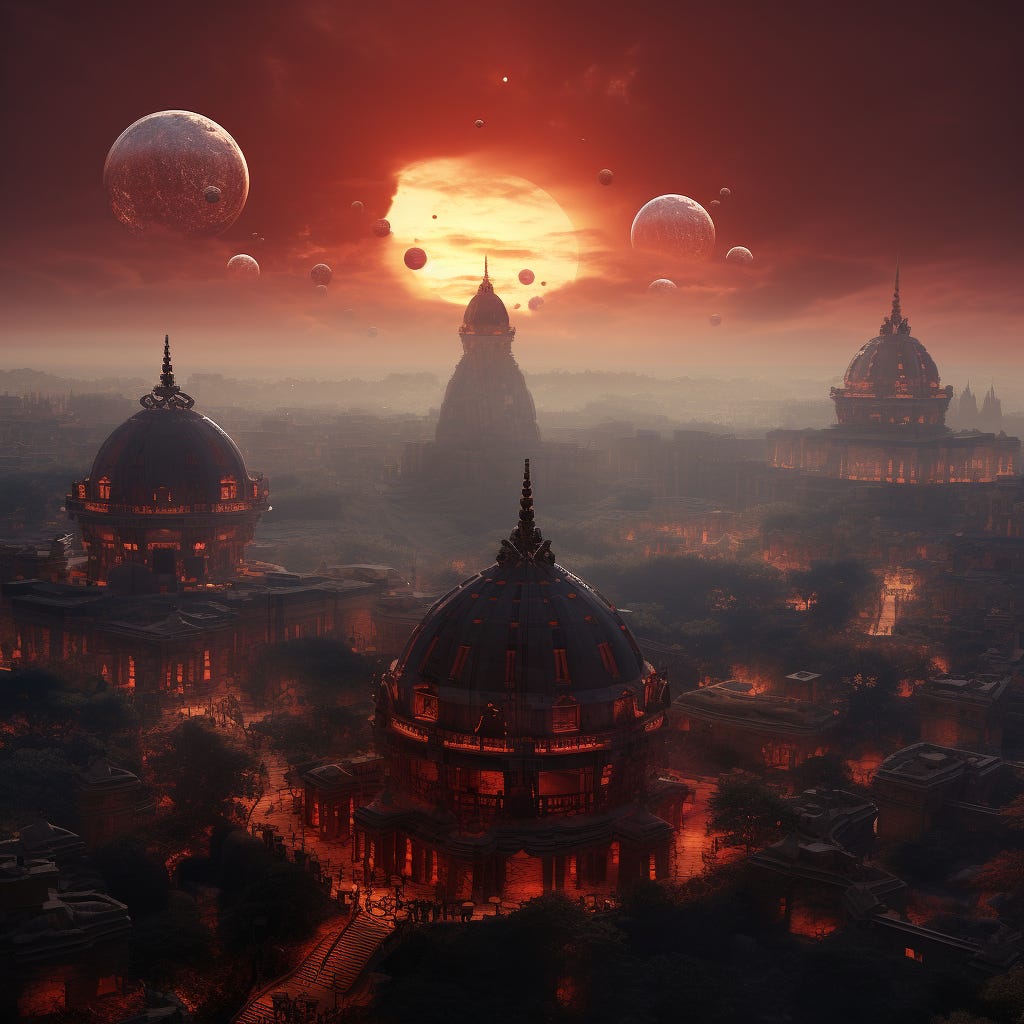
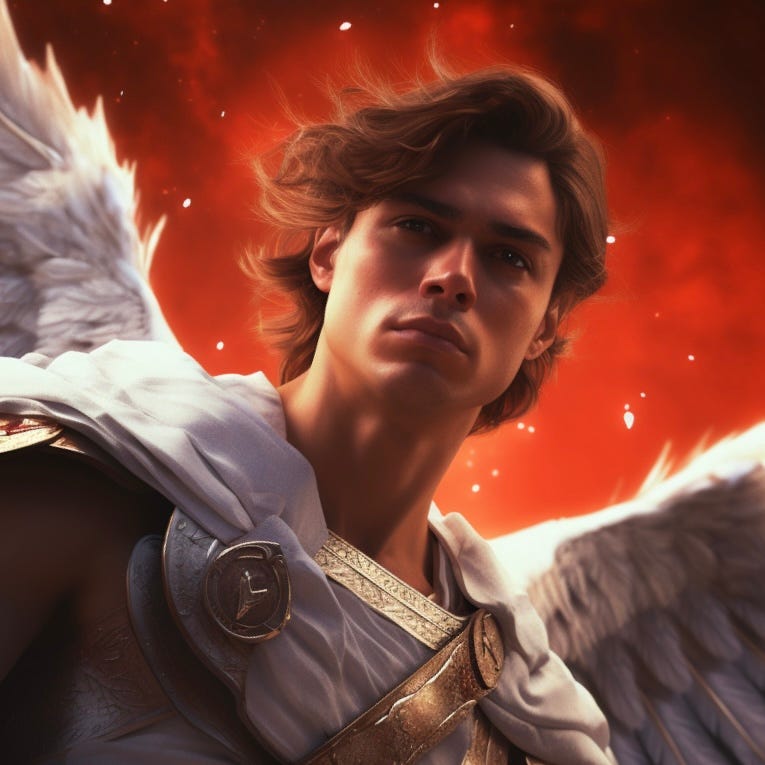

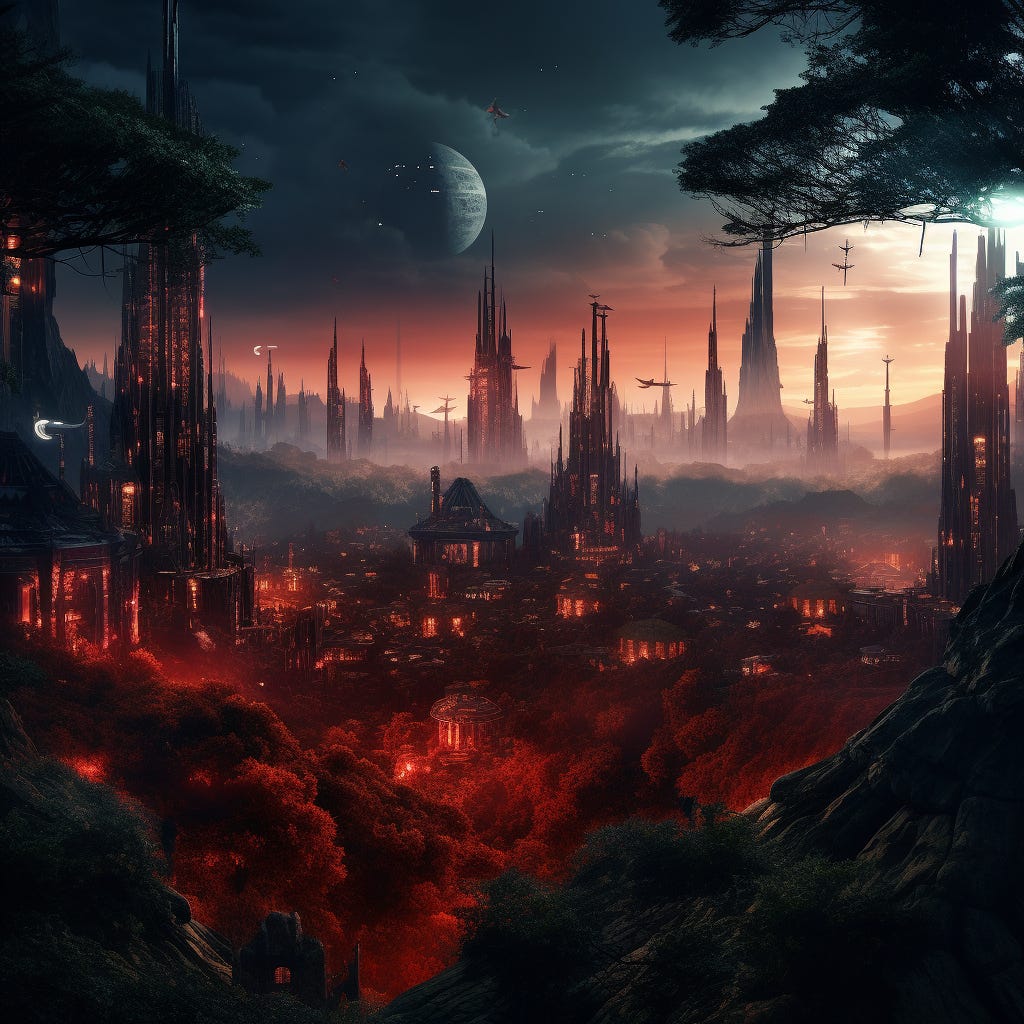

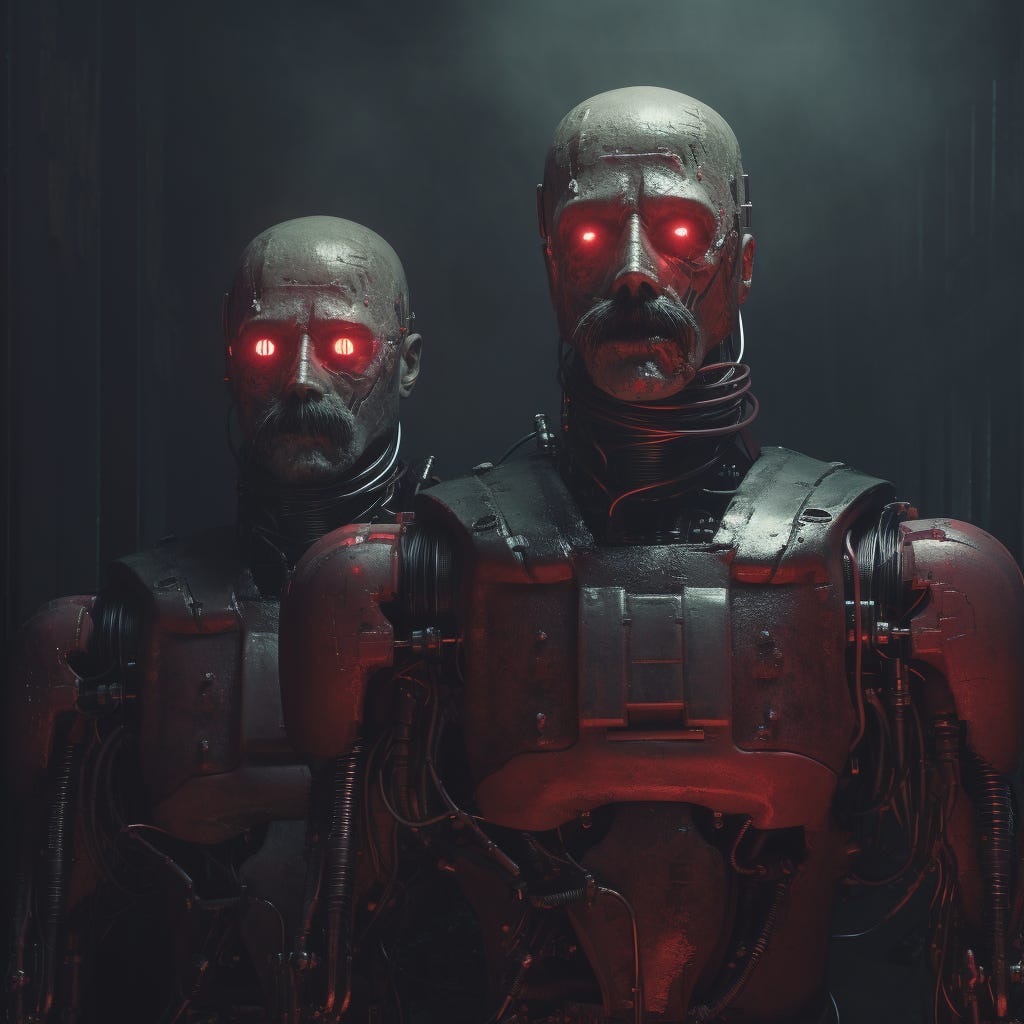
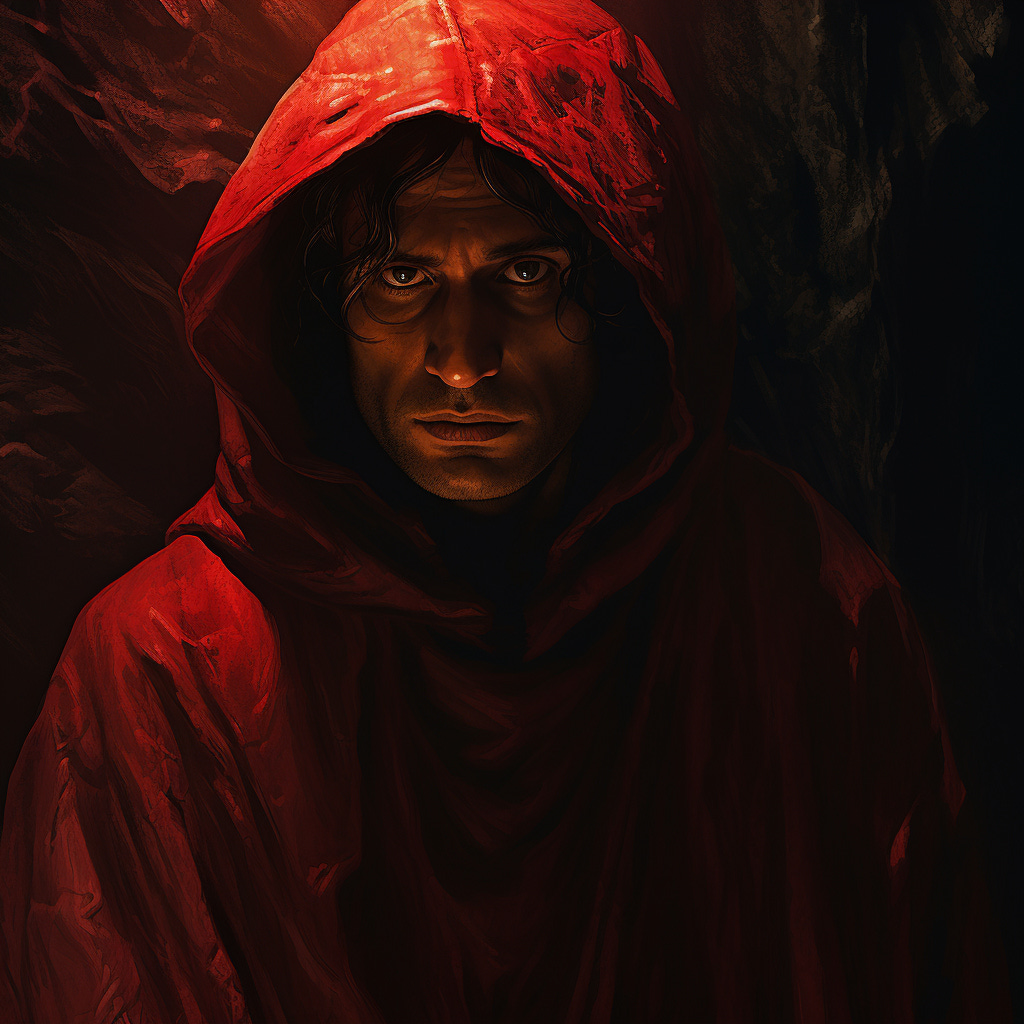

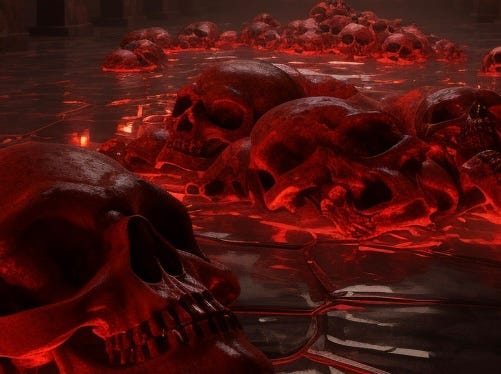
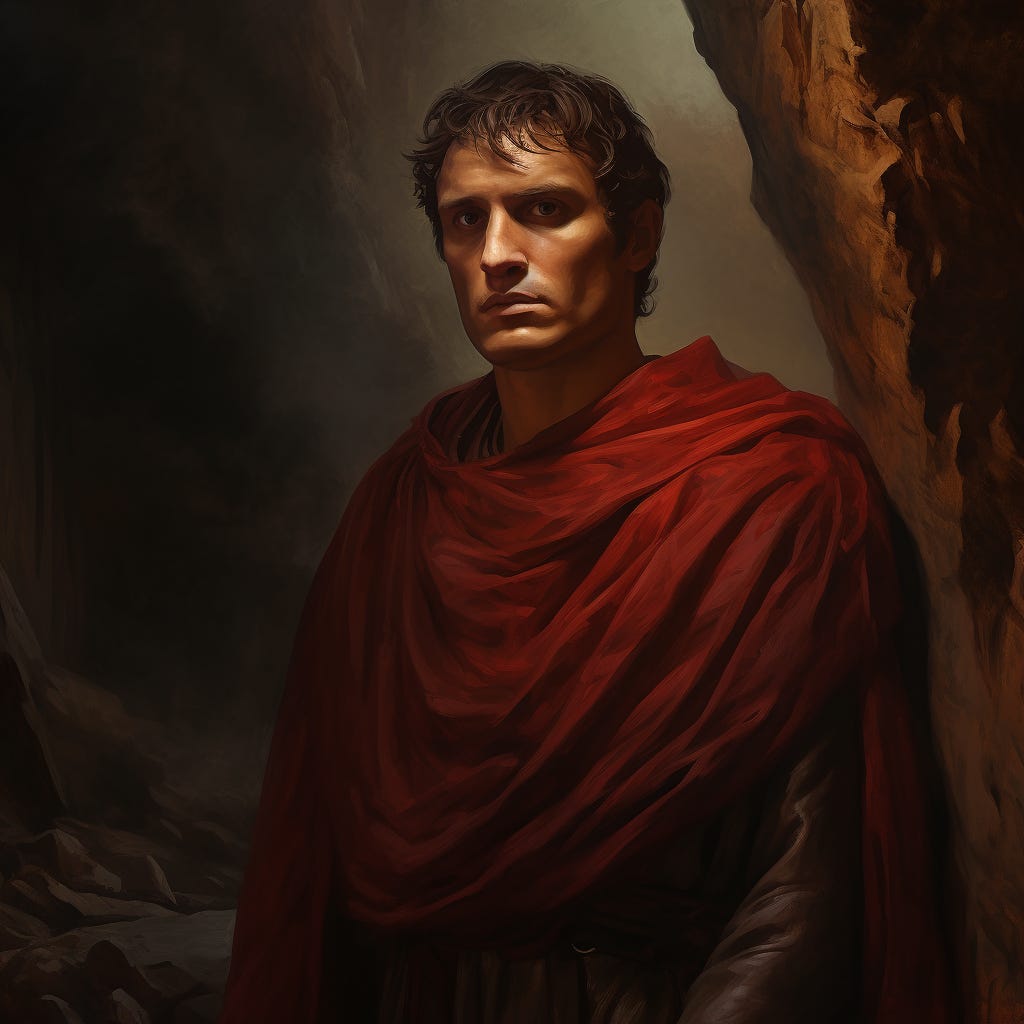

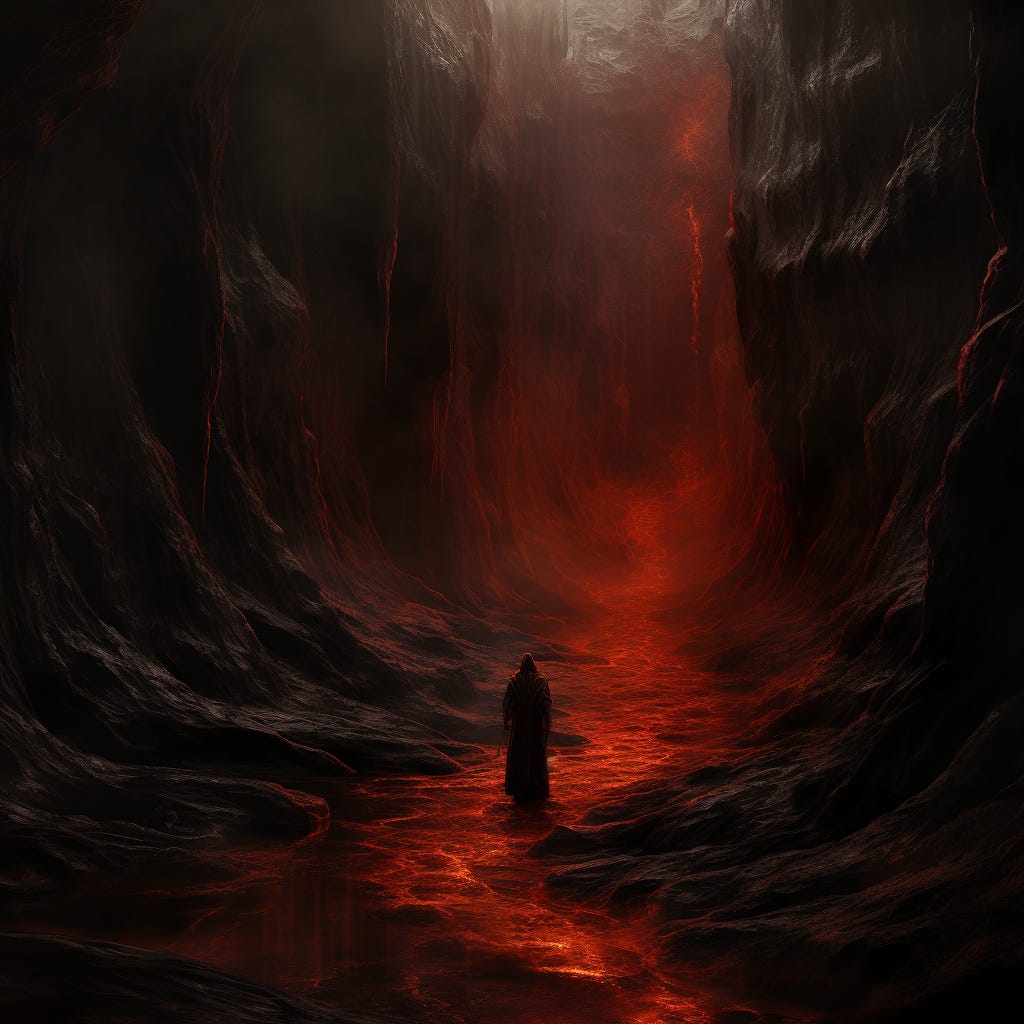
I love the Star Wars homage
This is fascinating, complex, and extremely well-written.